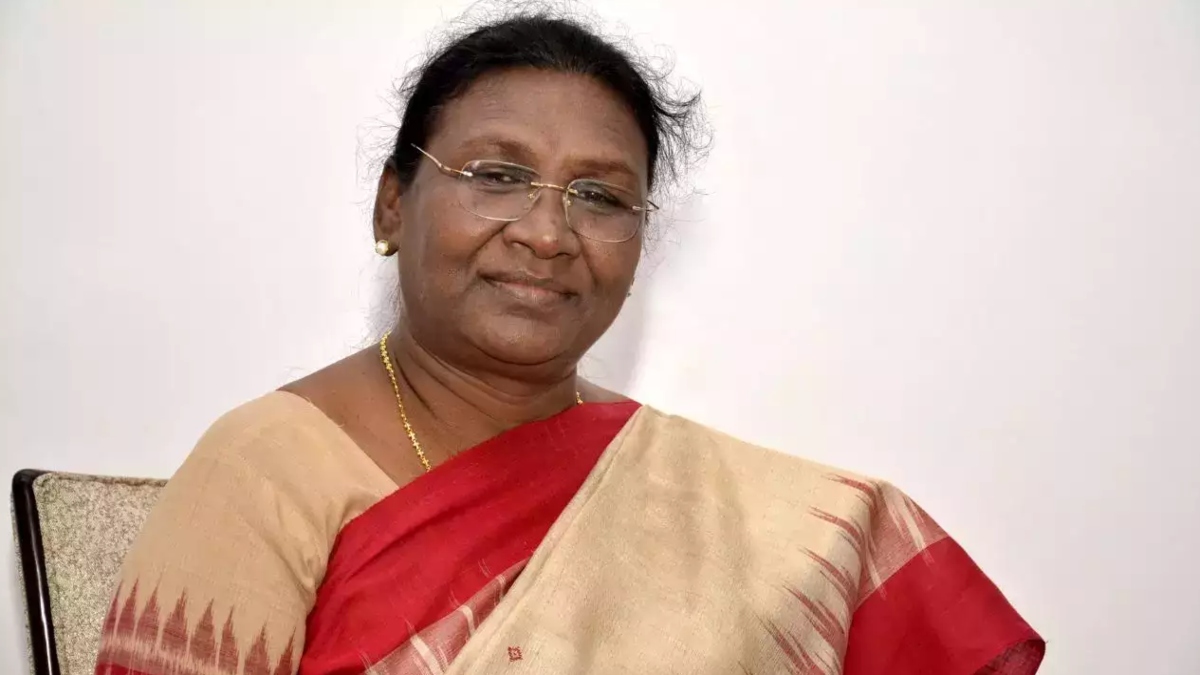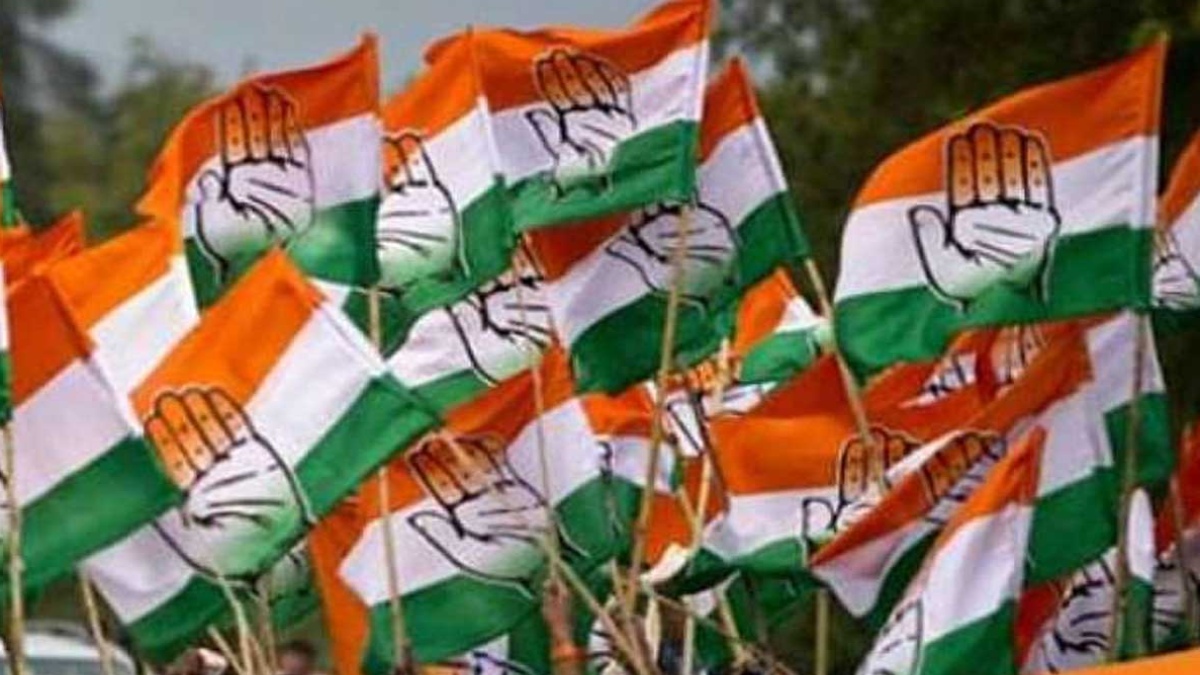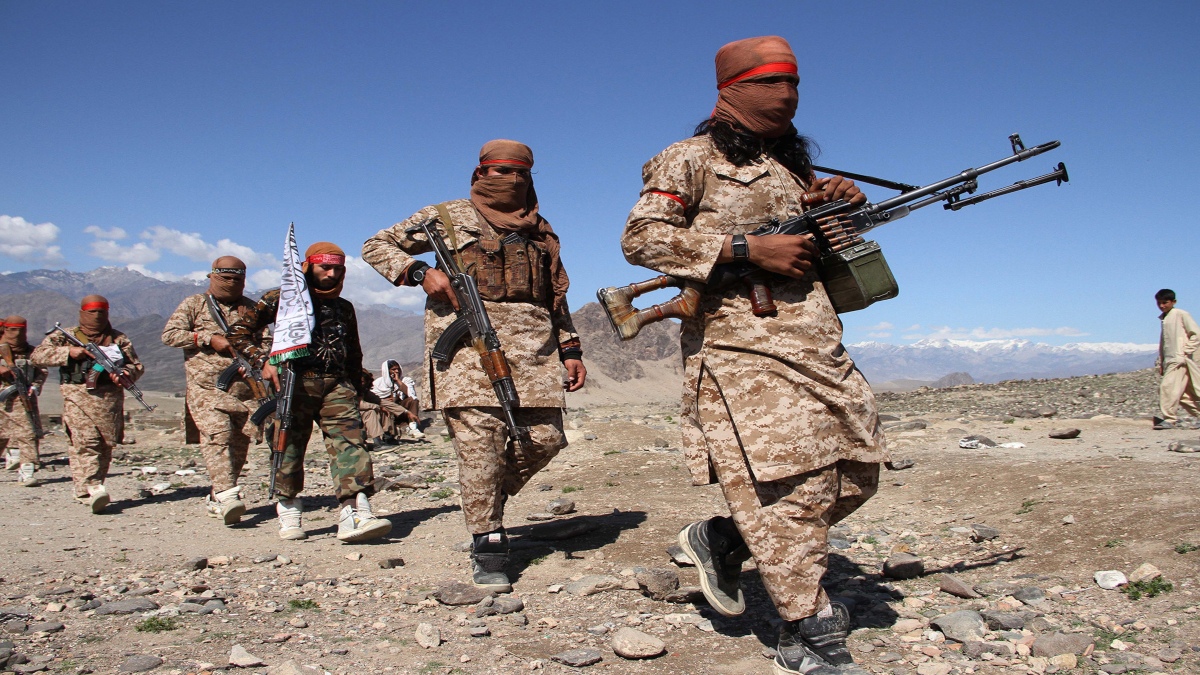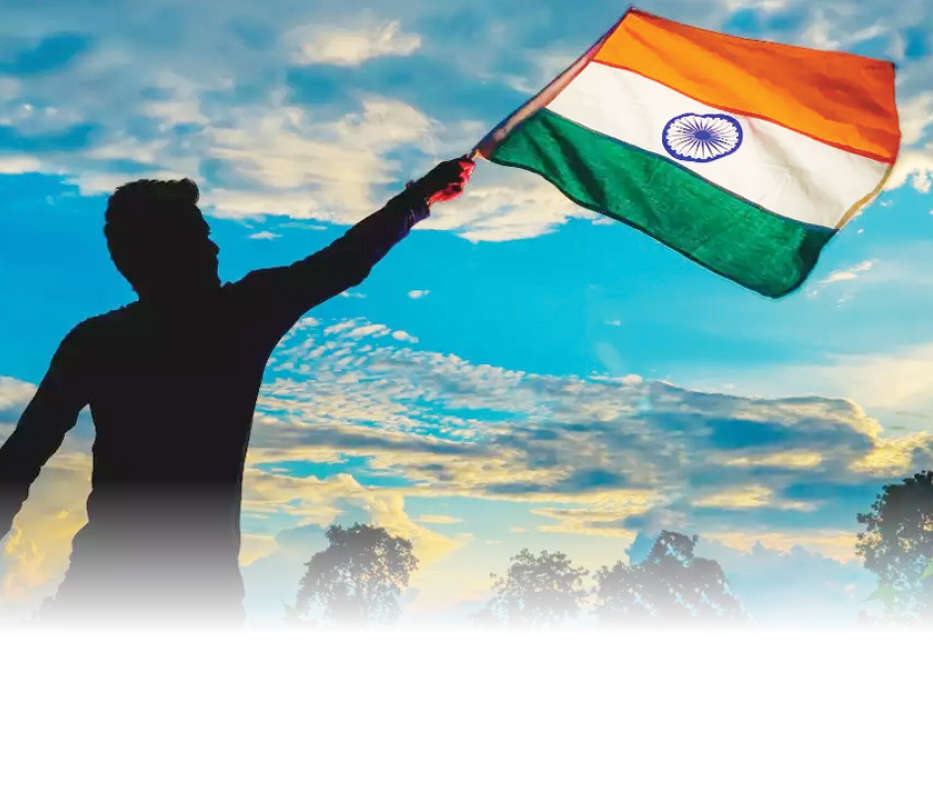If elected on July 18, 2022, Draupadi Murmu will be the first tribal President of India and only the second woman to hold the highest constitutional office of the land. Murmu was born in the Baldaposi village in the Kusumi block of Odisha’s Mayurbhanj, a district which has a 58 percent tribal population, the highest in Odisha. Her father, Biranchi Narayan Tudu was a farmer in the village. She completed her graduation from the Ramadevi Women’s University in Bhubaneswar (Odisha), with a Bachelor of Arts degree and in 1979, began work as a junior assistant in the State’s Irrigation and Power department. Post her marriage to Shyam Charan Murmu, a bank officer, Murmu quit the government job after four years, in 1983, to look after her three children, two sons and a daughter. She also worked as a teacher at Sri Aurobindo Integral Education Centre at Rairangpur from 1994 till 1997, before venturing into politics. In fact, it was during her stint in Rairangpur that she got interested in politics and joined the Bharatiya Janata Party (BJP). In 1997, she was elected to the Rairangpur Corporation and became the Vice Chairperson of the civic body.In 2000, when the BJP-BJD coalition contested together, Murmu won her first Assembly election and thereafter became Minister, holding portfolios like Transport and Commerce and then Fisheries and Animal Husbandry. Before she became an MLA, Murmu also served as a Councillor in the Rairangpur Nagar Panchayat. She also served in various roles as the Vice-President of the BJP’s Scheduled Tribes’ Morcha and the District President of BJP,for Odisha’s Mayurbhanj district, between 2002 and 2009. Undeniably, Murmu comes with widely rich and varied, administrative experience.
In 2004, she became a MLA again, this time in a cliffhanger, by a margin of 63 votes. In 2007, she was awarded the “Nilakantha Award” after being adjudged the best MLA in the Odisha assembly for the year 2007.
On July 8, 2022, at the first ever, Arun Jaitley Memorial lecture in New Delhi, Prime Minister Narendra Modi in his address said–India has achieved growth through inclusivity and furthered inclusivity through growth. PM Modi also spoke about how in the last eight years, we have reformed not by compulsion, but by conviction. Reforms are never about economic policies alone but involve reforming the mindset too and that is easier said than done. But when the person involved is Narendra Modi, nothing is difficult, no matter how tough it may seem and in endorsing Droupadi Murmu’s candidature for President, Modi has walked the talk on inclusivity.
When the alliance between the BJP and the BJD ended, Murmu, despite a Naveen Patnaik wave in 2009,managed to retain her Rairangpur seat.In 2015,Murmu was appointed as the first ever Governor of Jharkhand. In 2016, Murmu decided to donate her eyes upon her death, to The Kashyap Memorial Eye Hospital, at Ranchi.In her personal life, Murmu had seen much tragedy, having lost her husband Shyam Charan Murmu in 2014 and her two sons in 2009 and 2013, respectively. A lesser woman would have perhaps given up, but Droupadi Murmu’s personal tragedies only made her tougher for the challenges that lay ahead and to her credit she overcame every challenge that came her way, with equal aplomb, drawing strength from her close association with the Prajapita Brahmakumaris. Murmu created a record of being the first Governor to complete a full term and then served an extra year before exiting the office of Governor of Jharkhand, in 2021.
Murmu’s term as the 9th Governor of Jharkhand coincided partially with that of Raghubar Das who served as the 6th CM of Jharkhand for 5 years, starting from 2014 onward. The BJP led Raghubar Das government brought in two Bills to amend the Chota Nagpur Tenancy Act, 1908 and the Santhal Pargana Tenancy Act, 1949. These amendments related to allowing conversion of land use in tribal areas from agriculture to commercial purposes and set off a major uproar among tribal groups and civil society. These amendments were the antithesis of all the gains made by India’s tribals in terms of their land rights. Murmu as Governor, someone constitutionally empowered to intervene in issues related to scheduled areas, intervened and rejected the two Bills when they were presented to her, an act which won her many laurels from her community and even otherwise. By rejecting these Bills, Murmu had shown that she had the courage to stand by her people against all odds and she also had the conviction to use her constitutional status for the betterment of those marginalised tribals, who needed her support, the most.Jharkhand has 28 out of 81 assembly seats reserved for Scheduled Tribes and in that sense, is one of the most important States for tribals, politically.
When the government changed in Jharkhand in 2019, Hemant Soren and Droupadi Murmu managed a good working relationship. Ironically, Soren is part of the Opposition camp now, which has announced former Yashwant Sinha, as its presidential candidate. The distance travelled by Murmu, from Rairangpur to the Raisina Hills, which is now at arm’s length, is the story of a woman who battled every odd to aspire for the top most job in this country and amidst all this, let us not forget that the man who made this possible is none other than Prime Minister Narendra Modi. Murmu’s candidature obviously has PM Modi’s stamp of approval. With 11 women ministers in his cabinet, Modi has walked the talk when it comes to women empowerment, like no other predecessor before him.
Droupadi Murmu belongs to the Santhal tribe. Santhals, also known as Manjhis, are an ethnic group largely concentrated in the states of Jharkhand, Odisha, Bihar and West Bengal. According to Britannica, there are over 5 million Santhals in India alone.
Their primary profession is agriculture. However, according to a report by ANSI, they have started shifting to other jobs like coal mining.Their language is Santhali, a dialect of Kherwari.Droupadi Murmu’s home district, Mayurbhanj, is the preserve primarily of the Santhali people. Among all the tribes in India, Santhals have higher literacy. Originally nomadic, Santhals decided to settle in the Chhotanagpur plateau somewhere in the 18th century. One of the unique rules the community follows is that women are not allowed to weep or mourn the death of anybody, while they are pregnant. Their husbands are also not allowed to take part in the funeral procession.They are deeply connected to the Damodar river. In case of someone’s death, their ashes are immersed in this river. Their script, Ol-Chiki, is a recognised script in the eighth schedule of the Constitution. Are there other Santhal politicians in India? Yes, there are some Santhals at the top-most positions in India.
Some of them are, Hemant Soren,CM of Jharkhand,GC Murmu, Comptroller and Auditor General of India (also 1st LG of UT of Jammu and Kashmir, formerly) and Biseswar Tudu,Union Minister for Tribal Affairs and Jal Shakti. For a tribal Santhal woman from Odisha to have repeatedly broken every glass ceiling that came her way, has been Droupadi Murmu’s exceedingly firm and yet understated response, to her detractors. She has always allowed her work to do the talking.
Murmu was first considered a contender five years ago in 2017,but eventually the top job went to Ramnath Kovind,a Dalit.It needs to be mentioned here that while Parties like the Congress never went beyond lip service to the cause of Dalits, PM Modi, by first putting his weight behind Ramnath Kovind and now Droupadi Murmu,has sent out a loud and clear message–New India will be inclusive and will not discriminate against Dalits or Tribals, who were oppressed for decades under successive Congress regimes. Who can forget the humiliation heaped in 1952 and 1954 on Dalit icon Dr B.R. Ambedkar, with the Congress Party ( Nehru) repeatedly stonewalling his attempts to enter the Lok Sabha. Who can forget the fact that while Nehru and Indira Gandhi rewarded themselves by awarding themselves with India’s highest civilian honour, the Bharat Ratna, Babasaheb Bhimrao Ambedkar was given this honour much later in 1990, a good 34 years after his death! Who can forget how the Congress Party has completely obliterated the legacy of another Dalit leader,Babu Jagjivan Ram, India’s former Defence Minister. Modi’s powerful doctrine of Sabka Saath, Sabka Vikas, Sabka Vishwaas and Sabka Prayaas is not a mere slogan but an abiding work ethic and Murmu’s candidature, proves that in more ways than one.
Droupadi Murmu’s expected win as President, with the NDA commanding 48% of the electoral vote, will give a big boost to the BJP’s tribal push. The Modi government is clearly one that seeks to uplift the poor, Scheduled Castes and Scheduled Tribes, Dalits and Backward Classes. During the Congress regime, only Rs 21,000 crore was provided for the welfare of (tribal) people, but after Prime Minister Modi came to power in 2014, funds for tribal upliftment were enhanced to a whopping Rs 78,000 crore.
Among various tribal centric initiatives, some BJP ruled States like Madhya Pradesh (MP) hosted the “Van Samiti Sammelan”,in April 2022, a programme where bonus is distributed to collectors of forest produce such as tendu leaves (used to wrap bidis, an Indian version of cigarette) and forest societies. On one such occasion, Amit Shah, the Union Home Minister, also unveiled a plaque announcing the change of status of 827 `forest villages’ in MP, into `revenue villages’. There was a demand that these areas be declared revenue villages to ensure their development, as there are restrictions on undertaking projects in forest areas.
Terming the decision as historic, Shah said, it fulfilled a long-pending demand. Around Rs 123 crore was distributed as bonus to 12 lakh tendu leaf pluckers, bamboo growers and other forest produce societies. According to an estimate, there are around 35 lakh tendu pluckers in Madhya Pradesh alone. Tendu (diospyros melanoxylon) leaf collection is one of the major economic activities of tribals in Madhya Pradesh, Chhattisgarh, Jharkhand, West Bengal, Odisha and Andhra Pradesh. Tendu leaf collections generate 150 million person days of employment during the agricultural lean season. The limited point is, the Modi government has been steadfastly working on every hitherto, marginalised section of the society, beyond the realm of electoral gains. Madhya Pradesh which goes to polls in 2023, has decided to provide 20 per cent bonus to forest societies in the State. The Shivraj Singh Chouhan government will now give 20 percent of the revenue generated from all kinds of forest produce, to village committees and indigenous tribes who form over 21 per cent of the State’s demographic mix.
Today forest dwellers in Madhya Pradesh are becoming in many ways, owners of forests and their produce and this has been made possible only due to the foresight and vision of Prime Minister Modi, who has spent a painstaking amount of time to encourage States to proactively implement numerous schemes for tribal welfare.
Tribals hold the key to power in the State of Madhya Pradesh (MP) where 47 Assembly seats out of the total 230 are reserved for them. Besides, there are more than 50,000 tribal voters in the other 35 Assembly seats. The Congress had won 31 tribal reserved seats in 2018 and the BJP 16.The saffron party (BJP) stormed to power in MP by unseating the Congress in 2003 Assembly polls which saw the BJP winning 37 seats out of the 41 reserved for the Scheduled Tribes (STs) then. In 2008, the BJP won 31 out of the 47 ST reserved seats (their number increased due to delimitation exercise) and retained power. Five years later, the BJP repeated the performance in the tribal reserved Assembly constituencies. According to the Schedule Tribe Population Census of 2011, the population of indigenous people was more than 1.53 crore and accounted for 21.08 per cent of the total 7.26 crore inhabitants of Madhya Pradesh, ten years ago. So while political pundits may go overboard trying to convince themselves that Murmu’s candidature may have a lot to do with the upcoming polls next year in MP, the hard fact is, Narendra Modi’s politics has never been about opportunism or appeasement. It is true that between this year and next year, Gujarat, Madhya Pradesh, Rajasthan and Chhattisgarh which go to polls, have 128 seats reserved for STs, of which BJP won 35, last time. What is equally true is the fact that, if anything, Modi has clearly steered away from any form of exclusion and has always relied on holistic governance, in both letter and spirit. PM Modi’s endorsement of Murmu is in fact, a vindication of the PM’s tribal outreach and his commitment to giving greater representation to women, especially those from erstwhile, neglected and remote parts of the country. Who could have guessed that a Santhal, tribal woman from Mayurbhanj in Odisha, would be Modi’s choice for President? But well, Modi is known to take fearless decisions which have often confounded both his admirers and his critics. In this case, however, Modi’s endorsement of Murmu, has found him generous appreciation from almost all quarters.
Coming back to tribals, last year the Modi government declared November 15, the birth anniversary of Bhagwan Birsa Munda, as ‘Tribal Pride Day.’ In BJP ruled MP, a “Tribal Gaurav Diwas” to honour Birsa Munda, saw over 2.5 lakh tribals attending the function.
Paying his respect to Birsa Munda, who died at the young age of 25 in a jail in Ranchi in 1900,Prime Minister Narendra Modi tweeted, “Like we mark 15th August, 26th January, Gandhi Jayanti and Sardar Patel Jayanti, we shall mark 15th November, the Jayanti of Bhagwan Birsa Munda,as Janjatiya Gaurav Diwas. This will be a day to celebrate the glorious tribal culture and contribution to national development. Modi’s inclusive approach is also amplified by his cabinet reshuffle in July 2021, in which, from the 43 new ministers who took oath, 14 were OBCs, 9 SCs and 4 STs. In all, the Cabinet has 27 OBCs, 12 SCs and 8 STs, who together constitute 61% of the Cabinet. This is the “New India”, that has been given wings by PM Modi.
Modi’s complete support for Murmu, shows the PM’s inclusive approach. Andrés Tapia, the Global Diversity & Inclusion Solutions’ leader for Korn Ferry Hay Group, one of the leading voices in shaping an inclusive world order, says– “Diversity is the mix. Inclusion is making the mix work”. And without any doubt, by putting his weight behind Droupadi Murmu, PM Modi has made the “mix work”, something that only a leader of Modi’s stature could have pulled off so effortlessly. Coming back to Droupadi Murmu, born on June 20, 1958, at Mayurbhanj, Odisha, if elected, Murmu will have many firsts to her credit, as she would be the first tribal President of India and the first female leader from the East to hold the highest office.She will also be the first President of India to be born after independence.She will be only the second female President of India after Pratibha Devisingh Patil.Suffice to say that Murmu is no pushover but a seasoned grassroots’ politician, with impeccable credentials. From being the first tribal woman to have become the Governor of a State (Jharkhand) in 2015,to now taking that big leap of faith as she sets her eyes on becoming India’s first tribal President, Murmu has come a long way. In Murmu’s gritty story, also lies the fact that in Narendra Modi, India finally has a Prime Minister who has always walked the talk on women empowerment and last mile delivery, unflinchingly and unwaveringly. Diversity is a fact but inclusion is a choice and by endorsing Droupadi Murmu, PM Modi has sent out a powerful message–he stands for inclusion and inclusivity, in more ways than one.
Sanju Verma is an Economist, National Spokesperson of the BJP and the Bestselling Author of ‘The Modi Gambit’.


 Opinion3 years ago
Opinion3 years ago
 Entertainment8 years ago
Entertainment8 years ago
 Entertainment8 years ago
Entertainment8 years ago
 Fashion8 years ago
Fashion8 years ago
 Opinion4 years ago
Opinion4 years ago
 Entertainment8 years ago
Entertainment8 years ago
 Politics8 years ago
Politics8 years ago
 Entertainment8 years ago
Entertainment8 years ago









